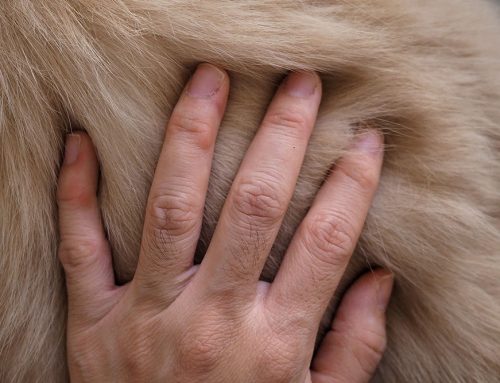Maybe you are planning a vacation, or you are moving off-island. If your pet is accompanying you on your travels, they will need a health certificate. These documents are paramount, to ensure your pet is healthy enough to travel, and to help prevent disease spread. Our team at Guam Pet Hospital wants you to understand why health certificates are so important.
#1: Health certificates ensure your pet is healthy enough to travel
Your pet must be examined by a United States Department of Agriculture (USDA)-accredited veterinarian for a health certificate to be issued. Luckily, Dr. Bob has those qualifications, and can issue the appropriate travel health certificates. Dr. Bob will perform a thorough physical exam to ensure your pet is not exhibiting any disease signs, and he will assess their ability to handle the trip. During the exam, he will ensure your pet’s vaccinations are up to date, and he may perform a heartworm test and a fecal test to check for intestinal parasites. Dr. Bob may also recommend microchipping your pet, to help ensure they will be returned to you if they go missing. Other factors to consider when traveling with your pet include:
- Age — Geriatric pets may be more vulnerable to problems while traveling, and Dr. Bob may want to run more detailed bloodwork to ensure they are fit for the trip.
- Chronic conditions — If your pet is affected by a chronic condition, such as diabetes or arthritis, traveling may be more difficult and uncomfortable. Dr. Bob may suggest medications to help make their journey more manageable.
#2: Health certificates prevent your pet from spreading diseases to people
Zoonotic diseases are infections that can be spread between people and animals. By ensuring your pet is not showing any illness signs, the spread of these diseases can be stopped. Zoonotic diseases include:
- Rabies — A deadly viral infection spread through an infected animal’s bite, rabies causes the brain to become inflamed, which results in signs including fever, difficulty swallowing, excessive drooling, incoordination, seizures, and paralysis. Once these signs manifest, the disease is almost always fatal. Treatment involving several painful injections is available for humans, but must be started shortly after the bite occurs. Your pet will need a current rabies vaccination before they can travel.
- Salmonellosis — Salmonella is a bacterial infection transmitted by eating contaminated food, or contacting contaminated objects. The bacteria is shed in an infected animal’s feces. Signs include vomiting, diarrhea, which sometimes is bloody, fever, lethargy, and decreased appetite.
- Leptospirosis — A bacterial infection most commonly transmitted by contacting an infected animal’s urine, leptospirosis signs include lethargy, jaundice (i.e., yellow-tinged mucous membranes), vomiting, and inflamed eyes. A vaccine for dogs is available, but not required for travel.
#3: Health certificates prevent your pet from spreading diseases to other pets
If your pet is not current on their vaccinations, they could spread diseases to other pets, including:
- Parvovirus — Parvo, a highly contagious viral disease that attacks a dog’s gastrointestinal tract, most commonly affects puppies and unvaccinated dogs. The virus is transmitted by contacting an infected dog’s feces. Signs include fever, severe diarrhea, and vomiting. Your dog will need to be up to date on their parvovirus vaccination to travel.
- Canine distemper — A highly contagious viral disease, distemper attacks a dog’s respiratory, gastrointestinal, and nervous systems. Puppies and unvaccinated dogs are most at risk. Signs include fever, ocular discharge, cough, lethargy, and vomiting. Your dog will need a current distemper vaccination to travel.
- Panleukopenia — Also a highly contagious viral disease, panleukopenia attacks a cat’s gastrointestinal tract, bone marrow, and lymph nodes. Kittens and unvaccinated cats are most at risk. Signs include lethargy, fever, vomiting, severe diarrhea, and nasal discharge. Your cat will need a current panleukopenia vaccine before traveling.
Feline viral rhinotracheitis and calicivirus — These contagious viruses attack a cat’s respiratory system. Kittens and unvaccinated cats are most at risk. Signs include lethargy, sneezing, conjunctivitis, and ocular and nasal discharge. Your cat will need a current vaccination to travel.
#4: Health certificates prevent your pet from spreading parasites

A pet who is infected by parasites, such as fleas, ticks, heartworms, or intestinal worms, can spread them to other pets and humans. Problems include:
- Intestinal parasites — These parasites reside in your pet’s gastrointestinal tract, and leach nutrients. They can spread to other animals through an infected pet’s feces, and several species can also infect humans. Signs include diarrhea, weight loss, and vomiting. A fecal test will detect intestinal parasites. Your pet should be on a regular preventive for intestinal parasites.
- Heartworms — These parasites are spread by an infected mosquito’s bite. They can significantly damage your pet’s heart, lungs, and vasculature. If infected, a mosquito can ingest blood from your pet and infect another pet when they bite. Many pets do not exhibit signs, especially in the early stages. Later signs include cough, exercise intolerance, and weight loss. A blood test can detect heartworms. Your pet should be on a regular heartworm preventive.
Dr. Bob recommends having your pet examined within 10 days of your scheduled flight. If you need a health certificate for your pet, do not hesitate to contact our team and schedule an appointment at Guam Pet Hospital.








Leave A Comment